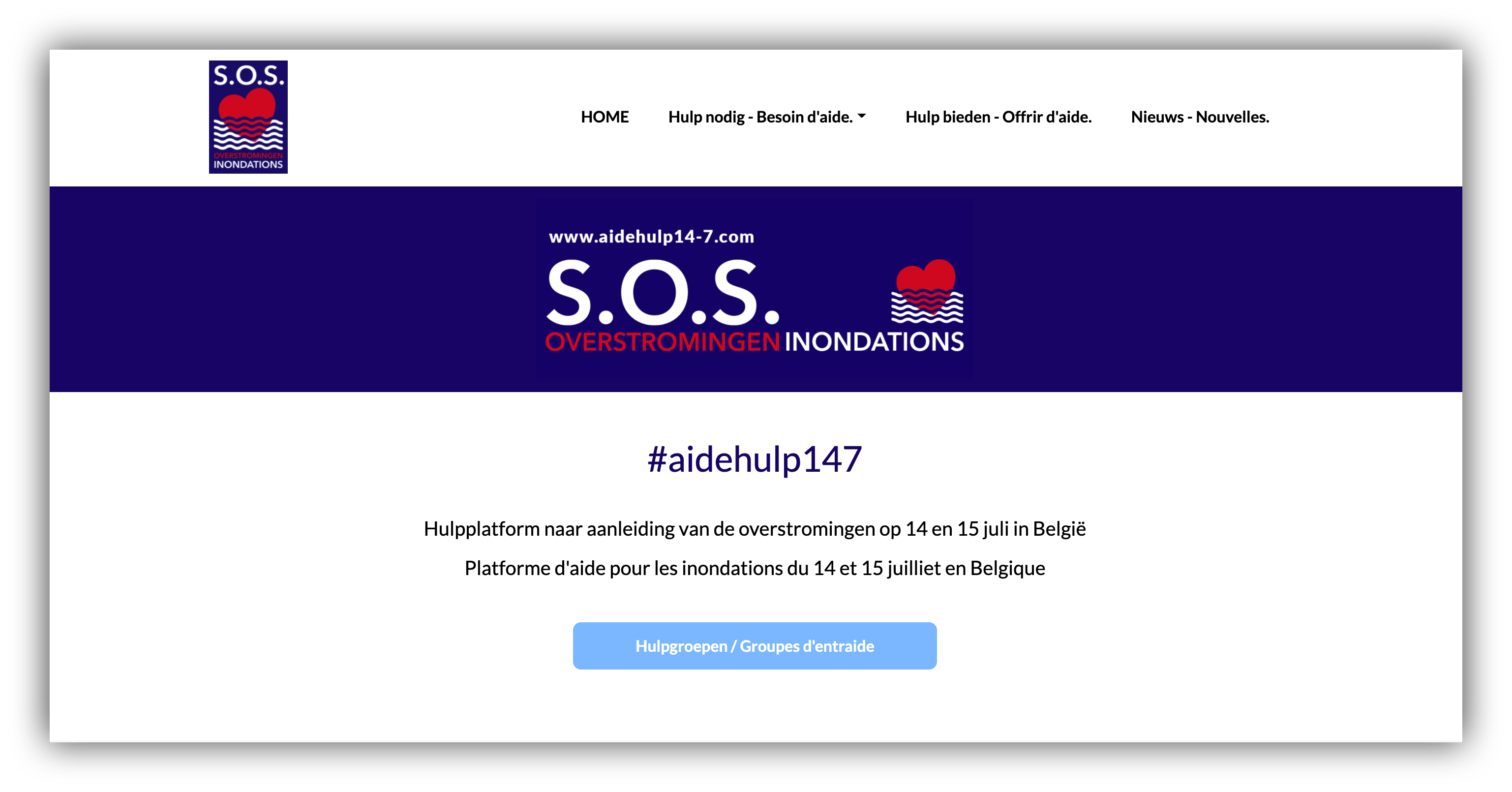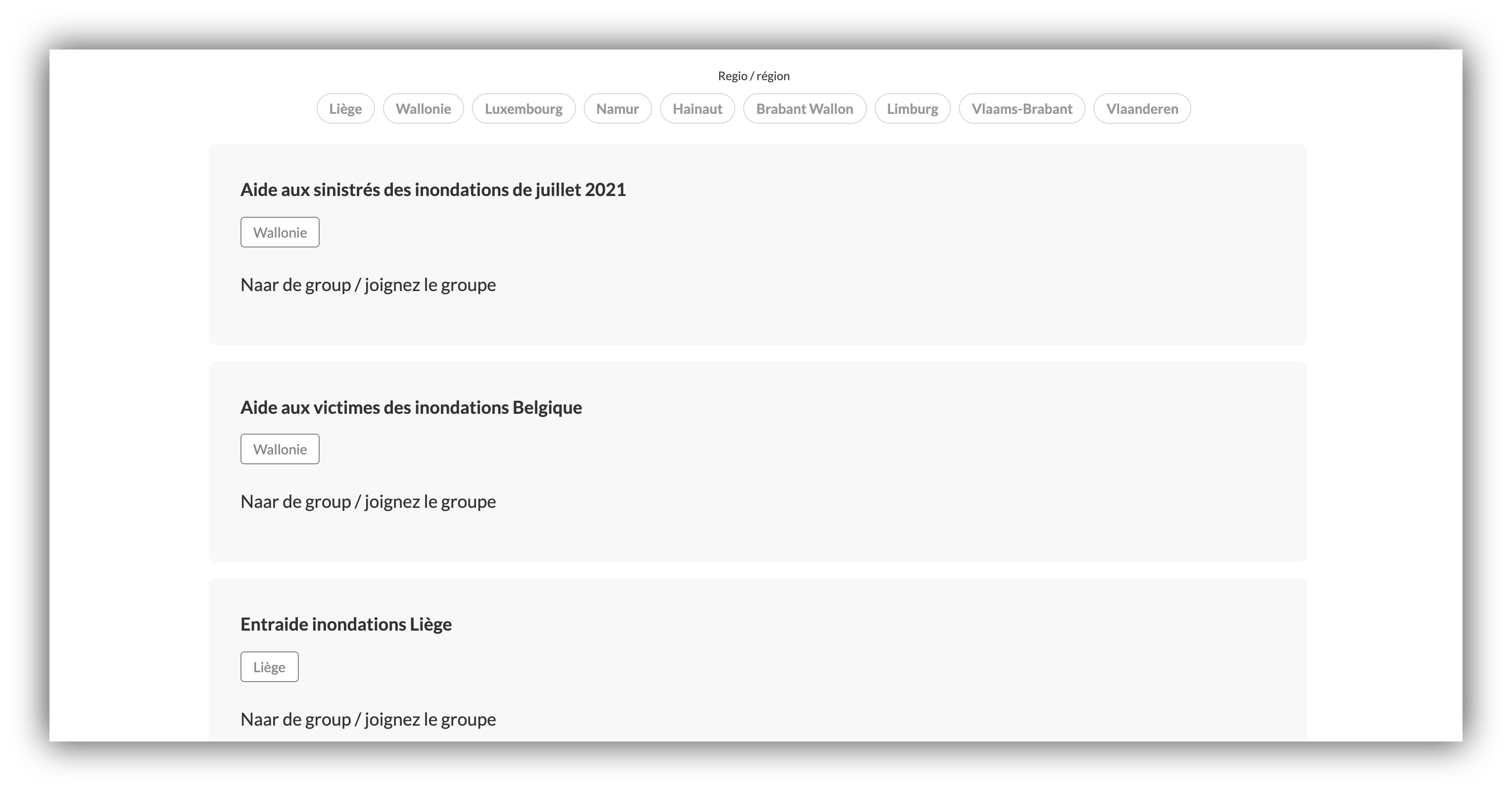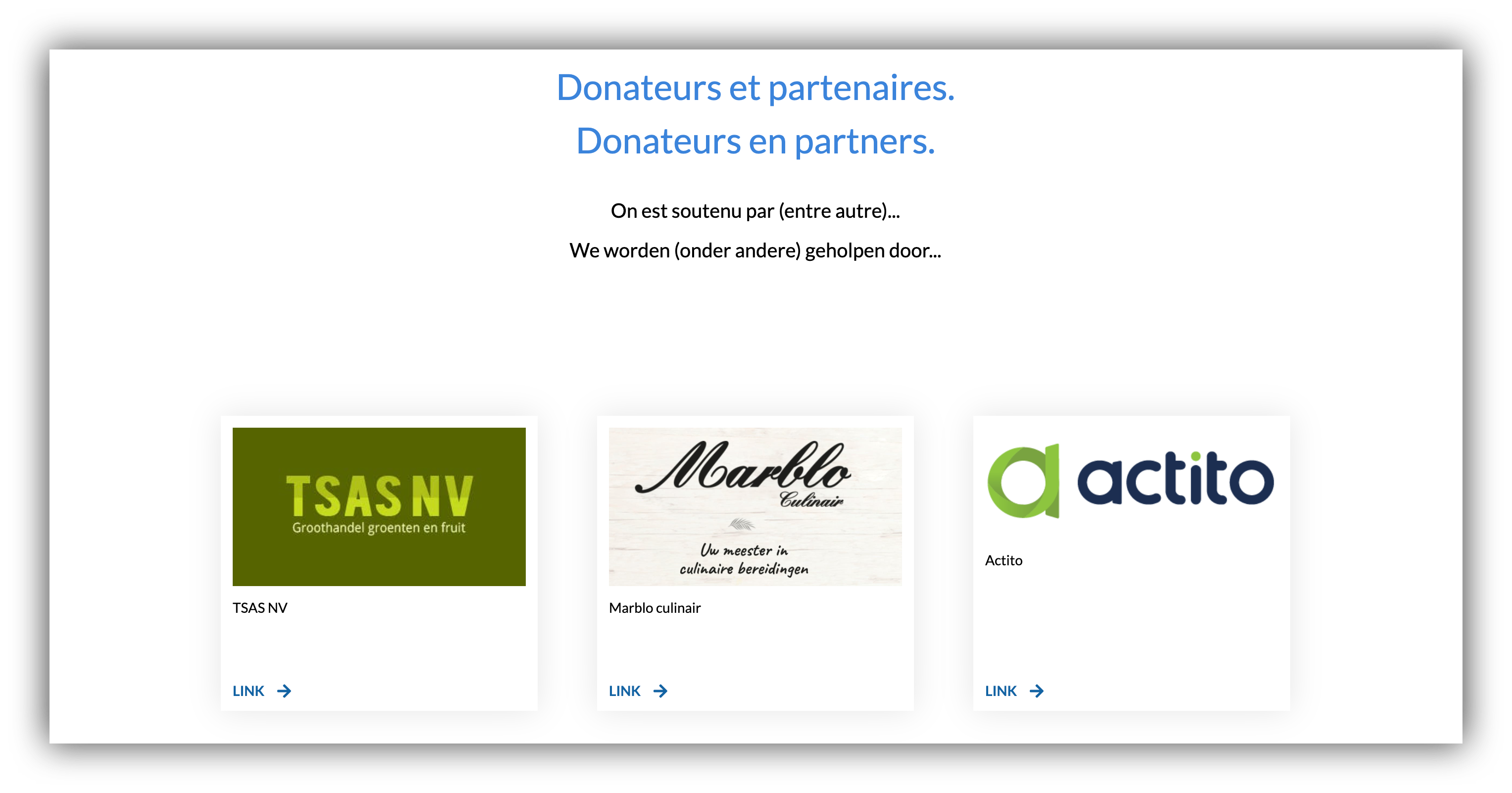Over 3000 people offering help through a peer-to-peer marketplace platform
After a flood hit Belgium, Ilse and her colleague decided to create a platform to address the physical and emotional needs of the victims. The platform was launched immediately after the disaster. Softr served as a peer-to-peer marketplace builder, where people could either post offers or submit help requests.

3000+
People offering help
250,000+
Visits within 4 days after the launch
15,000€+
Donations
Introduction
Ilse is a digital marketer and consultant based in Beligum. On July 14, 2021, Belgium was hit by heavy floods, and over 20,000 households were affected with billions of euros in damage. A lot of volunteers started offering help immediately on social media, but everything was really chaotic and unstructured and thus often ineffective. Therefore, on July 15, she and her colleague launched a platform to address that. They basically built a peer-to-peer marketplace, where people either posted offers or help requests, so that members could access all the information in a structured way and contact one another directly.
Ilse had worked on numerous no-code projects in the past (eCommerce store, marketing job board, blog, etc.) and was familiar with a variety of tools. She knew immediately that Softr was the right choice and could serve as a peer-to-peer marketplace builder. So, let's dive deeper and find out why Softr was a good fit for this case and how the developed platform was able to help the people affected by the flood.

Building the Platform
The goal was to launch the platform really fast to start structuring help offers as soon as possible, so Ilse, having used Softr in the past, was certain that it was the right tool to use in this case.
"We didn’t even try other tools, since I was convinced this would be the perfect solution for our use case. We needed something that we could easily link to a very flexible database (Airtable in this case)."
Ilse Van Dyck, Creator, aidehulp14-7.com
Moreover, Ilse didn't want to spend much time thinking about the design and UX and needed something that was good straight out of the box. Eventually, they were able to have the platform up and running in 3 hours, providing forms to quickly enter requests or offer details that people had. All the submissions were stored in an Airtable database and presented publicly within a directory that could be filtered based on the type of help required or offered (furniture, cleaning services, food, shelter, and so on). Ilse also stresses the fact that, apart from the need to build the peer-to-peer marketplace, they also had to maintain and adapt it as the database grew and more was being learned.
"With Softr we could very quickly adapt the platform as the number of submissions increased and new factors needed to be taken into account. After all, we had zero experience with crisis management. We needed a tool that was flexible and that we could quickly adapt to any insights we were gaining throughout the process."
Ilse Van Dyck, Creator, aidehulp14-7.com
Overall, Ilse and her colleague were really satisfied with what they had been able to achieve in such a short period of time. The speed and flexibility were crucial in their case.
"We heard of other organizations that were building for days or even weeks to get a similar platform live and running. While in times of crisis, you need a platform to be up ASAP. While the water is still in the streets. That’s when help is needed most urgently."
Ilse Van Dyck, Creator, aidehulp14-7.com

Results and Next Steps
The platform went live on July the 15th and just 4 days later it already had 250,000 visitors and 3000 people offering their help through the peer-to-peer marketplace. Ilse and her colleague had around 100 press interviews within two weeks since the launch of the platform, which attracted even more visitors. Over 15,000€ was donated to a dedicated organization, which was used to build and maintain field kitchens in the affected regions. Over 3000 warm meals were provided to people left without food or kitchens. Ilse and her team also invested in tools, dryers, and hardware for people to help clean and rebuild their homes.
"We haven't really measured how many people have been helped through our marketplace, but we continue to hear stories of people who got in touch through the platform. People helped each other in various ways – from pumps to help clear the water from basements to providing fields where horses or other animals could be moved to. From giving food and furniture to allocating houses for families to temporarily stay in."
Ilse Van Dyck, Creator, aidehulp14-7.com
And this is just the tangible part of the support. The platform has also helped people to get in touch and assist one another emotionally. Many of them are still in touch and continue to provide emotional support.
Now, after several months since the disaster occurred, the most urgent issues have been addressed, and Belgium is looking for ways to rebuild and recover the affected areas. Since the needs are no longer critical, the peer-to-peer marketplace part of the platform has been discontinued. Right now, the website mostly serves as a source of information, providing, among other things, links to useful external resources where people can find more information on the subject.
Last but not least, the platform has helped to gather a lot of valuable information that could potentially be used in the future in the context of crisis management. Ilse and her colleague are already collaborating with other organizations to apply their experience and data to other areas and possibly at a larger scale.